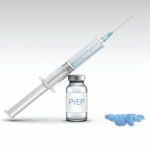In 2007, the World Health Organization and the Joint United Nations Programme on HIV/AIDS (UNAIDS) cited that voluntary medical male circumcision could reduce the risk of HIV infection by about 60 percent in high-risk areas including sub-Saharan Africa. But even if millions of adult men were willing to undergo the procedure, would it be possible and cost-effective in impoverished rural areas? As Forbes reports, start-up company Circ MedTech created PrePex, a simple nonsurgical device that makes adult male circumcision easy, cheap and nearly painless.
The device consists of two rings; one is placed inside and the other outside a man’s foreskin where they’re left in place for a week to restrict blood flow. The skin is then removed at a hospital.
Verified as safe by the World Health Organization (WHO), the final procedure takes just five minutes to complete and involves no surgery, stiches or recovery time. It’s simple to teach, set up and perform, which reduces the burden on African health care assistants. It also doesn’t require running water or electricity, saving hospitals energy costs. And because it causes minimal discomfort, patients can return to work right after the procedure.
However, male circumcision is not typically practiced across Africa. According to Forbes, Circ MedTech’s director of marketing, Adi Kadussi, explained the challenges of educating men about it and sharing its benefits.
“This was a big marketing challenge,” Kadussi said, speaking from the Health in Action stage at the Cannes Lions International Festival of Creativity in France. “There are 27 million men in Africa that speak dozens of different languages, spread across different rural areas and don’t have access to social media.”
The organization found that the most successful communication tool wasn’t a traditional ad campaign. “Word of mouth about the device and the painless procedure spread,” Kadussi said, “and people started lining up outside clinics in Rwanda, which no one ever expected.”
“We’ve delivered more than one million devices for countries in Africa,” Kadussi said, “which according to statistical models, means 150 million HIV cases have been diverted.”
To read a collection of related POZ stories, click #Circumcision.







Comments
Comments